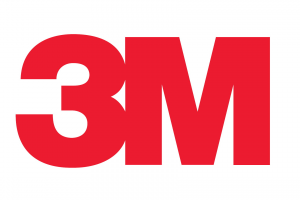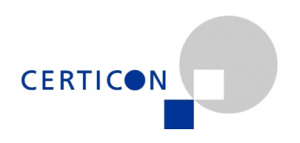Important information relevant for VAT payers
5.01.2015Company: PricewaterhouseCoopers Česká republika, s.r.o.
The introduction of a third rate is currently the most talked-about thing in relation to VAT. However, this
change is not the only one taxpayers need to thoroughly prepare for. Two amendments to the VAT Act have
already been published in Czech law, and the third one is awaiting approval by the Senate. What will be
new in the VAT Act from January 2015?
Introduction of the third VAT rate
A third VAT rate of 10% is going to be introduced in 2015. This rate will apply to:
• baby formula, children’s food and probably also for special gluten-free food,
• vaccines, drugs and chemical contraceptives - intended for medical and veterinary services, prevention of diseases and for human and veterinary treatment purposes,
• printed books, children’s picture books and sheet music.
The introduction of the previously approved uniform VAT rate of 17.5% was cancelled.
Changes in the rules of the place of supply for some B2C services
The changes are related to the supplies of electronic and telecommunication services and radio and television broadcasting to final customers (B2C), which will be taxed in individualEU member states according to the place of residence of the final customer starting from 1 January 2015. If a company providing these services does not want to register for VAT in each
EU country, it may register for the Mini One-StopShop in their country of residence, or, for companies based outside the EU, in any EU country. It has been possible to register for the Mini One-Stop-Shop in the Czech Republic since 1 October 2014.
Extension of the local reverse charge mechanism
Provided the relevant amendment is approved, additional categories of goods will be subject to the local reverse charge
mechanism, for the purpose of fighting tax fraud. Purchasers will be obliged to account for VAT when purchasing laptops, mobile phones, game consoles, microprocessors, some metals, and certain cereals and industrial crops. The reverse charge
mechanism for these commodities applies only if the total amount of the tax base for the taxable supply exceeds CZK 100,000. The application of the reverse charge continues to apply for construction and assembly work or transfer of allowances to emit greenhouse gases. Specific commodities which will be subject to the reverse charge mechanism may be specified by a government regulation with the consent of the European Commission within the Quick Reaction Mechanism.
Changes in VAT in relation to real estate
Provided the relevant amendment is approved, there will be, after only one year, further changes in the application of VAT on real estate. The transfer of land should be exempt from VAT if it does not constitute a functional unit with the building fixed to the ground and if it is not a building plot. The amendment defines what is meant by land, which does (not) constitute a functional unit with the building, and what is meant by a building plot. However, these definitions are not
specific enough and may therefore cause interpretation problems.
The amendment should lead to a change in the moment from which the five-year period for the purposes of VAT exemption on the transfer of certain real estate is calculated. According to the amendment, the period should be calculated for example from the moment a completion certificate for a "substantial change" in a completed building is issued or from other moments.
Taxpayers will be able to use the option of taxation not only for buildings and built-up land, but also for undeveloped lands. If the option for taxation is used, the reverse charge mechanism will apply if the land or building is transferred by another VAT payer.
Furthermore, there should be a change in the interpretation of the law regarding the calculation of the area of a social housing apartment. The floor area underneath the walls will be factored into the area of the apartment as well. On the other hand, the area of the apartment will not include "apartment accessories", e.g. basements, garages or storage rooms,
provided that it is located in the same building as the apartment.
Changes in the calculation of turnover
Provided the relevant amendment is approved, the calculation of turnover for the purpose of VAT registration should include rent for immovable property in compliance with § 56a of the VAT Act. According to the transitional provisions, the calculation for the calendar months of 2014 will not include the rent in compliance with § 56a. The turnover limit for
registration in the amount of CZK 1,000,000 for the previous maximum of 12 consecutive calendar months remains in force. The planned reduction to CZK 750,000 will be cancelled if the amendment is approved.
Extension of the unreliable payer criteria and reduction of the limit for payments to unpublished bank account
The rules regarding unreliable VAT payers were tightened in October 2014. A taxpayer is marked as unreliable if he is purposefully out of contact, repeatedly fails to meet the deadline for the mandatory filing of VAT reports, has a tax debt
bigger than half a million crowns for more than three months and if the tax authorities had to repeatedly determine his tax base themselves based on information and materials. Even stricter rules that particularly affect companies based on virtual
addresses will be effective from 1 January 2015.
The limit for payments to unpublished bank accounts for the purpose of determining the liability of the recipient of a supply for VAT underpaid by the suppliers has been tightened as well. The limit is reduced from CZK 750,000 to CZK 540,000 in connection with the amendment to the Act on the Limitation of Cash Payments.
Outlook for 2016
Control evidence and electronic records of sales
Control evidence will contain all domestic transactions and prior considerations for which a complete tax document was issued, for both supplied and received supplies in the relevant tax period. Information about transactions will be
reported in a particular structure published in advance by the tax authorities. VAT payers will also be required to file control evidence when issuing the corrective tax document. Failure to report will be sanctioned. Control evidence should become
effective in 2016.
According to electronic records of sales, each payment received other than by bank transfer will be subject to a special reporting system. All persons receiving payments will be required to give the customer a receipt, which will contain a
unique code generated online at the moment the receipt is issued by the system run by the Financial Administration of the Czech Republic. Thus, the Financial Administration will have sales data accessible in real time. The electronic records
of sales are based on the so-called “Croatian model” and should prevent fraudulent concealment and reduction of sales.
For a discussion of how this new rule might affect your business, please contact our VAT experts:
Martin Diviš
+420 251 152 574
martin.divis@cz.pwc.com







